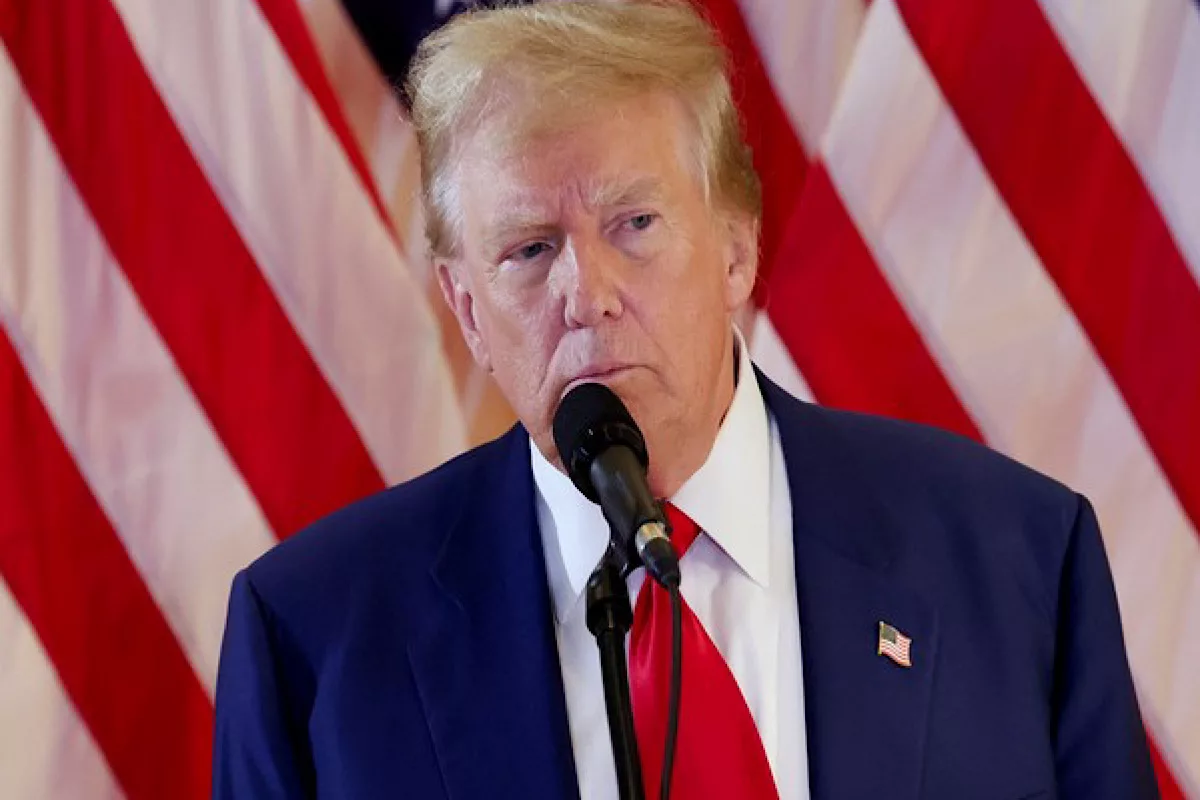Socialists invent class, nationalists invent the nation, and so the populists invent the people. This phrase distills a defining element of Donald Trump’s political appeal and hints at his most recent ambition: a potential third term as President of the United States. Though the U.S. Constitution’s 22nd Amendment prevents any president from serving more than two terms, Trump’s words and actions suggest he may be willing to challenge this long-standing restriction, fuelling a new wave of discussion and debate over the limits of executive power in American democracy. Since the amendment’s ratification in 1951 – following Franklin D. Roosevelt’s unprecedented four-term presidency presidential term limits have been an integral part of the U.S. Constitution. The amendment, designed to curb the accumulation of too much power in any single leader, was introduced to preserve democracy by preventing extended reigns in the nation’s highest office.
No president has seriously challenged it since then, but Trump is no ordinary president. His populist approach, aimed at dismantling traditional norms, opens the possibility of a third run, capturing the imagination of his base and sparking concerns among political observers. To challenge the 22nd Amendment would require a Herculean political effort. Passing a constitutional amendment demands supermajorities in both houses of Congress – at least 290 of 435 votes in the House of Representatives and 67 of 100 in the Senate. Beyond that, 38 of the 50 U.S. states would need to ratify the amendment for it to take effect. These hurdles are in place to protect foundational principles, making any change exceedingly difficult in today’s deeply divided political environment. Yet Trump’s populist appeal and unorthodox style suggest he may believe these obstacles can be overcome with the right message and a mobilized base.
Advertisement
Trump’s possible third-term bid aligns with his larger-than-life image as a leader “for the people” and against what he describes as the political “elite.” Since his initial election in 2016, he has characterized himself as an outsider, ready to do whatever it takes to shake up a system he claims has lost touch with ordinary Americans. For his supporters, Trump’s style and policy choices, though controversial, embody this outsider ethos. His administration was marked by decisions that broke with political tradition, and his unconventional appointments were often more a reflection of popular sentiment than professional credentials. One of the most emblematic aspects of Trump’s presidency was his appointment of vocal anti-vaccine activist Robert F. Kennedy Jr. to a health advisory position. This move catered to a faction of his base sceptical of established health policies and, in particular, vaccine mandates. Critics claimed such appointments undermined science and public health, but Trump’s supporters saw them as a challenge to what they perceived as unchecked authority in the medical establishment.
For Trump, these decisions represented the broader ethos of populism: amplifying voices and viewpoints that had previously been sidelined. Another example of Trump’s populist style was his choice of press secretaries, particularly young women with media-savvy personas who connected directly with the public via social media. His selections, including the likes of Kayleigh McEnany, were criticized by some for focusing more on appearance and charisma than on experience. However, Trump’s supporters viewed these choices as refreshing, seeing them as a break from the bureaucratic norm and a shift towards an administration that felt accessible and in touch with the media culture of the digital age.
As Trump hints at a third bid, the debate surrounding his intentions has taken on a constitutional dimension. The 22nd Amendment exists precisely to prevent the concentration of power in any single leader. Trump’s willingness to consider a challenge to it raises questions about the durability of democratic norms in an era defined by populism. Should Trump genuinely pursue this path, he would need overwhelming support not only from Congress but also from the American public, as the approval of 38 states would be a formidable requirement in any political landscape. Supporters argue that extraordinary times call for extraordinary leaders, and they believe a two-term limit might unjustly prevent an effective president from serving during times of need. In this light, they see a third term as a reasonable consideration, arguing that American voters not constitutional constraints should decide if a president has earned another term.
For them, Trump’s influence and agenda are about preserving an American identity they feel is under threat, and any pushback against constitutional limits would be a justifiable means of defending their vision. Detractors, however, view Trump’s interest in a third term as a dangerous move toward authoritarianism. Presidential term limits were introduced precisely to prevent prolonged rule by a single individual, and those opposing Trump’s potential third run see it as a challenge to the very foundation of American democracy. In their view, any attempt to amend the 22nd Amendment to suit a specific political figure would erode the integrity of the U.S. Constitution and pave the way for other leaders to attempt similar power consolidations. For Trump, the symbolism of pursuing a third term could resonate with his base as a continuation of a populist “revolution” against entrenched elites and political norms. His 2016 slogan, “Make America Great Again,” has evolved beyond policy into a full-fledged movement focused on challenging mainstream power structures.
Trump supporters, many of whom distrust the establishment media, see their loyalty as a stand for American identity against forces they view as diluting it. This segment of the electorate sees Trump as a cultural warrior, someone who dares to say and do what others would not. For them, a third term would represent a continuation of that battle. However, amending the Constitution for a third term goes beyond any individual candidate; it brings into focus a central tension in democratic societies. How much flexibility should there be in the rules governing leadership succession? The power and appeal of populism lies in its ability to connect with “the people,” but this connection can sometimes strain the structures of democratic governance. Trump’s challenge to the 22nd Amendment may be seen as an expression of populism taken to its ultimate extent, where the will of the people is pitted against institutional safeguards.
If Trump were to succeed in garnering support for a third term, it would mark a significant shift in American democracy. It would signal a move toward a system more open to bending long-standing rules in favour of powerful personalities. For some, this flexibility could be viewed as a pragmatic approach in an era of rapid change, adapting constitutional norms to meet the demands of a polarized society. For others, it would represent a troubling departure from democratic principles and an endorsement of political instability. As the 2028 election draws nearer, the potential for Trump to pursue a third term, or at least lay the groundwork for that possibility, will likely continue to dominate public conversation. His brand of populism has already reshaped American politics, challenging notions of civility, convention, and governance.
A push for a third term would amplify these dynamics. In the end, Trump’s third-term ambitions are more than a political question they are a defining moment for American democracy in the populist age. Whether Trump ultimately succeeds or not, his willingness to entertain the notion of amending the 22nd Amendment is a testament to the profound shifts populism has brought to the political landscape. The debate that Trump has ignited will shape American democracy long after 2028, leaving a lasting imprint on the nation’s future.
(The writer is Associate Professor, Centre For South Asian Studies, Pondicherry Central University.)











